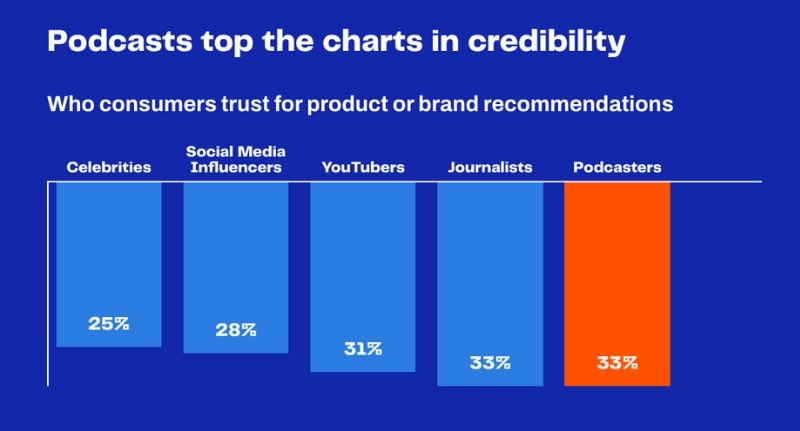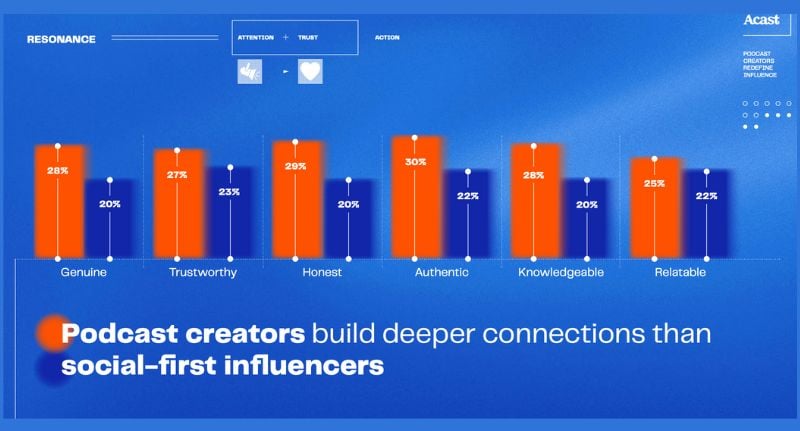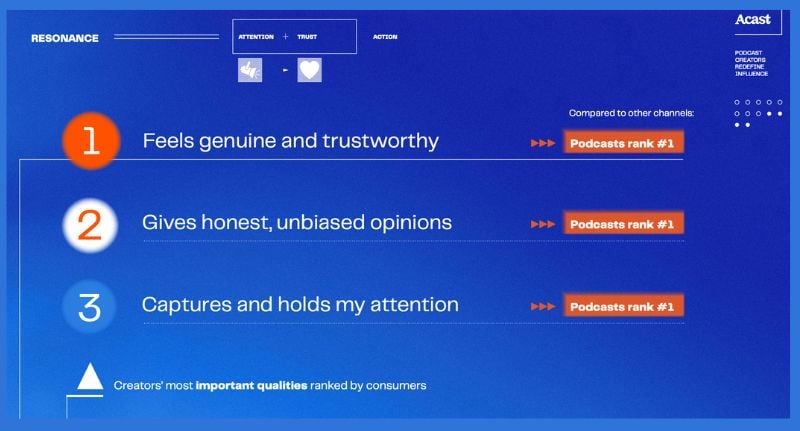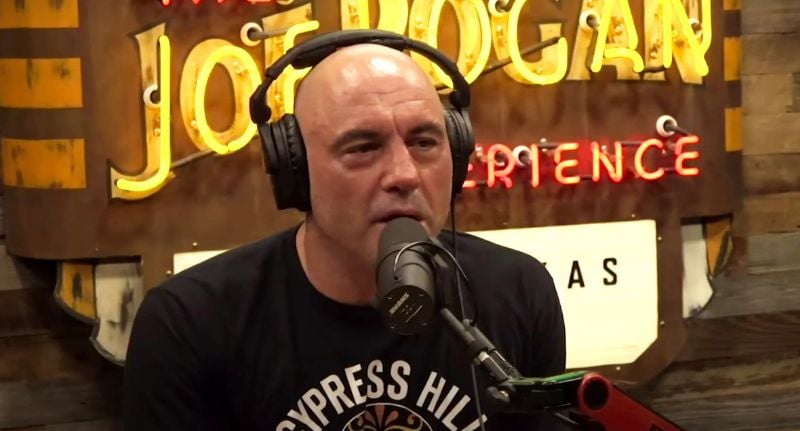Podcasting has officially entered its trust era.
According to Acast’s new Podcast Pulse 2025 report, the medium’s influence is no longer defined by audience size, but by resonance – the rare combination of attention, authenticity and action.
The global study of more than 2,600 consumers across 10 markets, including Australia, found that podcasts now reach two-thirds of listeners each month, with attention levels peaking locally at 71%. When video podcasts are included, that reach jumps by another 39%.
But the data point that’s both alarming and encouraging? Podcasters and journalists are now equally trusted for product recommendations – 33% each – outranking YouTubers, influencers and celebrities.

Trust and transformation
Listeners describe podcasting as a uniquely personal medium:
• 79% say it feels like a one-to-one conversation;
• 84% say a podcaster has changed their mind about something;
• Three-quarters don’t see podcasters as “influencers” at all.
Instead, they see hosts as genuine, honest and captivating – traits that have helped podcasting overtake more traditional media channels as the most trusted format for storytelling.
For Walkley Award-winning investigative reporter and podcaster Richard Baker, that finding underscores both the opportunity and the risk.
“It underscores the connection, right? That’s why that trust is there,” Baker told Mediaweek. “But where I think there’s a question mark, or a problem, is that most of these people aren’t operating as traditional journalists. They’re not playing by the news rules.”
Baker says that what’s happening in podcasting is a mirror to the broader media shift. It’s one where intimacy and personality have overtaken institutional authority.
“It’s really interesting for those of us who come from traditional journalism backgrounds. The trust and perception that’s been placed in podcasts, and particularly those influential hosts. They connect and understand their audience better than a lot of mainstream media newsrooms,” he said.
Still, that connection brings new challenges for information integrity.
“Where it is concerning is: are those people who say they have such trust in podcasting verifying the information they’re hearing? Even with mainstream media, people need to make sure those facts come from authoritative places,” Baker said.
“That data is both a positive and a potential concern, and says a lot about the medium”.

Resonance over reach
For advertisers, the report reads like a validation of the podcast ad model.
Listeners rate podcast advertising as more authentic (45%), memorable (44%) and relevant (43%) than other channels. Ad loads are perceived as “light,” and brands need up to five times fewer exposures before consumers seriously consider them.
That’s backed by behavioural data: 67% of listeners say they’ve purchased something because of a podcast recommendation, while 70% say a host’s endorsement made them consider a brand they hadn’t previously heard of.
Baker believes that brand alignment has created a cultural split – between cheap, personality-led “infotainment” and slower, narrative-driven journalism that still holds power.
“The last 12 months has seen a lot of people writing eulogies for narrative and journalistic podcasting. But weekly shows still work because of the warmth, integrity, impact and authenticity,” he said.
“Ideally, when done well, those narrative podcasts get actual audio or transcripts of what happened… that’s where the journalism kicks in.”

The bottom line
Acast’s data shows that while podcasting’s commercial model matures, its cultural currency continues to climb. Listeners aren’t just tuning in – they’re changing their minds, buying the products, and trusting the voices behind the mic.
For Baker, that’s the lesson traditional media should heed.
“News brands should look at this data and see that the medium works,” he said.
“Instead of retreating from it, they should see an opportunity to re-energise the trust that’s been lost over the past 20 years in traditional media.”
Main image: Podcaster Joe Rogan
